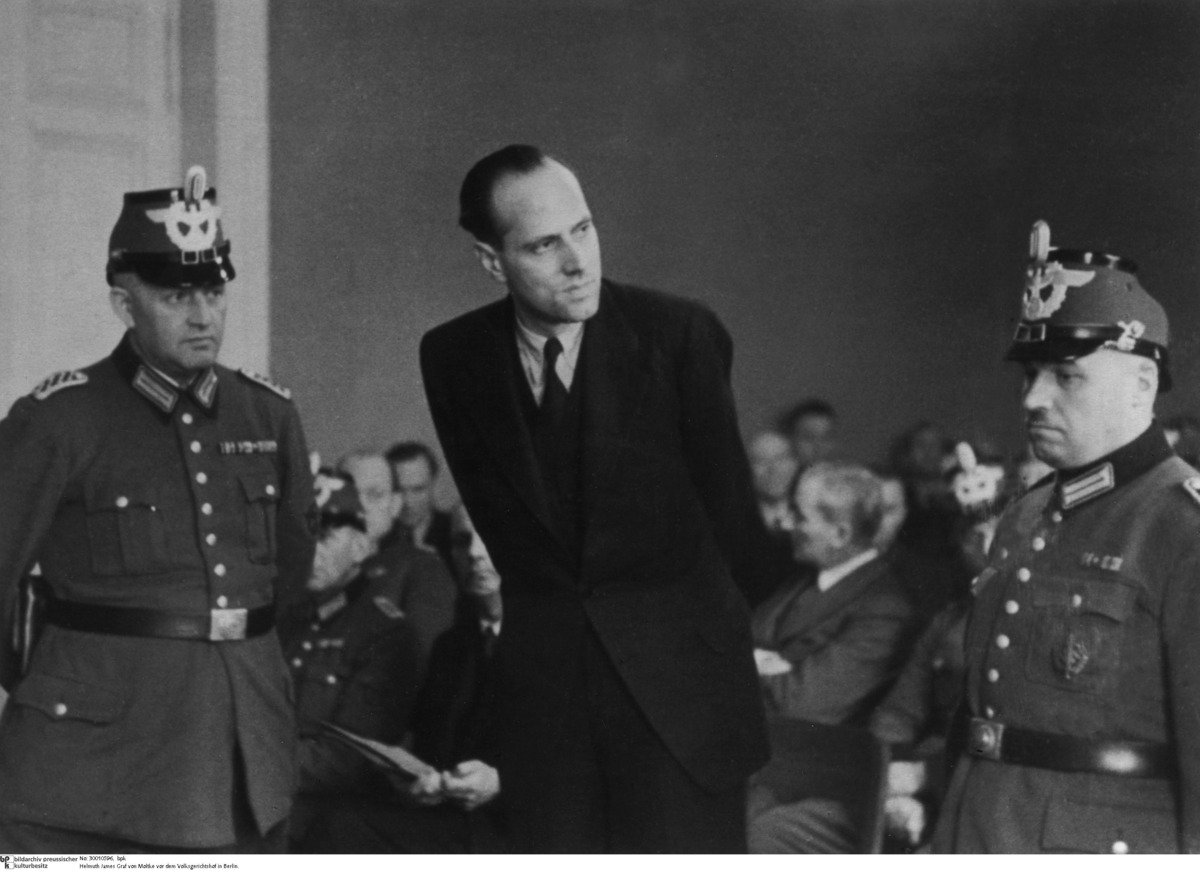Abstract
Count Helmuth James von Moltke was born in 1907 into one of Prussia’s
most distinguished noble families – he was the great-grandnephew of
Helmuth von Moltke (1800-1891), Chief of the Prussian General Staff
under Bismarck. In 1935, Moltke began working as a self-employed lawyer
in Berlin, where, among other professional activities, he used his
expertise in international law and international private law to help
victims of Nazi persecution emigrate. At the same time, he also took
advantage of any opportunity to make contacts for the German resistance,
especially in England. As founder of the resistance group known by the
Gestapo as the Kreisau Circle [Kreisauer
Kreis] (Kreisau being the name of his family’s Silesian estate,
where group meetings were held), Moltke was actively involved in
planning Germany’s new political and social order after the hoped-for
downfall of the Hitler regime. On account of his Christian convictions,
however, he initially rejected the idea of assassinating Hitler. In his
work in the Office of Military Intelligence
[Abwehr] within the High Command of
the Wehrmacht (OKW), Moltke tried to prevent the German military from
engaging in activities that were against international law. At the same
time, he also used his access to secret information to strengthen the
opposition.
In January 1944, Moltke was arrested for warning a friend of his own
impending arrest. At first, he was not charged with anything. A year
later, Roland Freisler’s (1893-1945) People’s Court sentenced him to
death for high treason in connection with the July 20, 1944,
assassination attempt on Hitler. It was a kangaroo trial, with the
government ultimately failing to prove his participation in preparations
for the act. He was executed on January 23, 1945.
